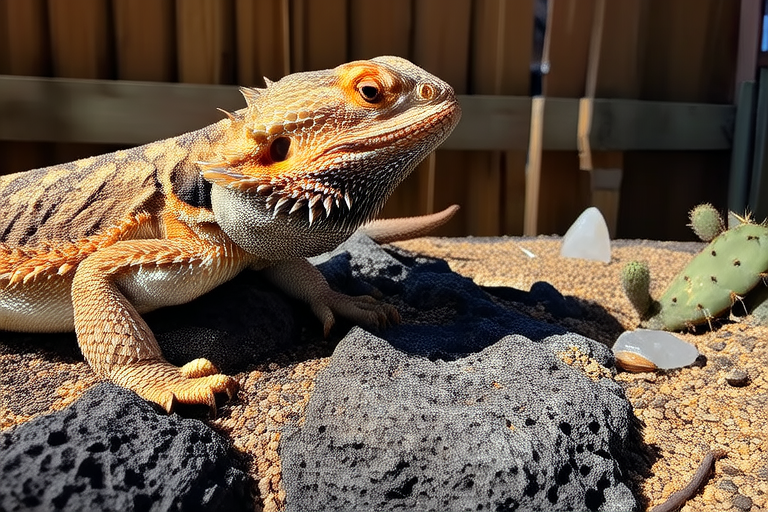The Ultimate Guide to Bearded Dragon Care for First-Time Owners
Introduction: Bearded Dragons – Popular Pets for Beginners
Welcome to the fascinating world of bearded dragons! These reptiles have become incredibly popular among pet owners, especially those new to the reptile-keeping hobby. Known for their docile nature, vibrant colors, and manageable size, bearded dragons are excellent companions for first-time reptile owners. They are relatively low-maintenance but still require careful attention to their specific needs to thrive. This guide will walk you through everything you need to know about setting up a proper habitat, feeding your dragon, handling and socializing it, monitoring its health, and keeping its environment clean.
Habitat Setup: Creating a Comfortable Home for Your Bearded Dragon
Tank Size and Enclosure
Your bearded dragon’s tank should be large enough to allow it ample space to move around and bask. A 40-gallon tank is suitable for a juvenile dragon, while an adult dragon will need at least a 55-gallon tank. Make sure the tank has a secure lid to prevent escapes.
Heating and Lighting
Bearded dragons are cold-blooded, so they rely on external heat sources to regulate their body temperature. Install a basking spot with a heat lamp that provides a temperature range of 95°F to 110°F (35°C to 43°C). The cooler side of the tank should remain between 75°F and 85°F (24°C to 29°C). Use a UVB light to provide essential vitamin D synthesis for calcium absorption; ensure the bulb is within 12 inches of the basking area.
Substrate and Decorations
Choose a safe substrate that won’t cause impaction if ingested. Reptile carpet or paper towels are excellent choices for juveniles due to their tendency to ingest substrate. For adults, you can opt for calcium sand or coconut fiber bedding. Avoid small gravel or wood shavings as these can lead to health issues. Add branches, rocks, and hides for climbing and hiding.
Diet Specifics: Feeding Your Bearded Dragon Properly
What Do Bearded Dragons Eat?
Bearded dragons are omnivores, consuming both plant matter and protein. Feed them a variety of vegetables like collard greens, squash, and bell peppers, along with insects such as crickets, dubia roaches, and mealworms. Offer a mix of fresh fruits occasionally.
Feeding Schedules
Feed juveniles daily, providing more protein than vegetables. As they grow, gradually increase vegetable intake while decreasing insect frequency. Adults should be fed every other day, with a focus on leafy greens and occasional insects.
Hydration
Provide a shallow water dish for drinking and soaking. Mist your dragon occasionally, especially during shedding periods, to aid in the process.
Handling and Socialization: Building a Bond with Your Dragon
Start by allowing your dragon to get used to your presence before attempting to handle it. Approach slowly and gently. Support its body when picking it up to avoid dropping or squeezing. Regular handling helps build trust and makes your dragon more comfortable around humans.
Health Monitoring: Keeping Your Dragon Happy and Healthy
Regularly check your dragon’s skin for any signs of injury or disease, such as cuts, swelling, or unusual discoloration. Monitor its appetite and energy levels; changes could indicate illness. Common health issues include metabolic bone disease, respiratory infections, and parasites. Seek veterinary care immediately if you notice any concerning symptoms.
Maintaining a Clean Environment: Essential for Your Dragon’s Well-being
Spot clean the enclosure daily, removing waste and uneaten food. Perform a thorough cleaning once a week, replacing substrate and disinfecting surfaces. This prevents the buildup of harmful bacteria and ensures a healthy living space for your dragon.
Conclusion: Tips for Success as a Bearded Dragon Owner
Caring for a bearded dragon is a rewarding experience that requires dedication and knowledge. By following this guide, you’ll be well-equipped to provide your pet with a loving home. Remember to stay informed about the latest care practices and consult with veterinarians when necessary. With proper care, your bearded dragon will enjoy a long, happy life as part of your family.
